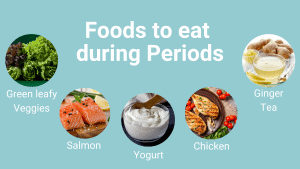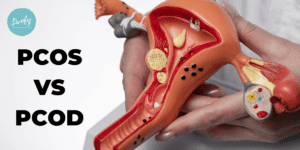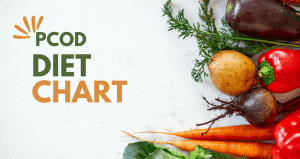Before we know about Dietary Protocols To Manage PCOS, first let us understand what is PCOS?
Polycystic Ovary Syndrome (PCOS) is a common health condition that affects women in their reproductive age. Some of the major reasons to suffer from PCOS are obesity, unhealthy eating habits, lack of physical activity, and increased levels of insulin which can lead to type 2 diabetes. However, a properly balanced diet can help reduce the impact of PCOS by helping manage weight & production and resistance to insulin. Technically there is no cure for PCOS which is mostly managed through hormonal medicines. However, proper diet and exercise can help extensively in managing the disease. Changing diet is one of the best things one can do to manage your PCOS.
How do Dietary Protocols help To Manage PCOS?
Diet and nutrition play a huge role in weight management. Hence paying attention to what you eat and adapting it accordingly could help PCOS symptoms. Many women with this specific disorder find that a low carb, high protein diet is very effective for weight loss with PCOS.
It’s not just about weight, however, as the nutrients you consume can have a direct impact on your hormone production. Therefore eating certain nutrients can help alleviate symptoms at a hormonal level. When thinking about what foods to eat with PCOS, it’s important to consider every aspect of your diet from breakfast to dinner. Ensure you’re eating a balanced diet. Keep plenty of variety, which can make healthy eating much easier to stick to.
Foods to eat:
Three diets that may help people with PCOS manage their symptoms are:
- A low glycemic index (GI) diet: The body digests foods with a low GI more slowly, meaning they do not cause insulin levels to rise as much or as quickly as other foods, such as some carbohydrates. Foods in a low GI diet include whole grains, legumes, nuts, seeds, fruits, starchy vegetables, and other unprocessed, low-carbohydrate foods.
- An anti-inflammatory diet: Anti-inflammatory foods, such as berries, fatty fish, leafy greens, and extra virgin olive oil, may reduce inflammation-related symptoms, such as fatigue.
- The DASH diet: Dietary Approaches to Stop Hypertension (DASH) diet to reduce the risk or impact of heart disease. It may also help manage PCOS symptoms. A DASH diet is rich in fish, poultry, fruits, vegetables whole grain, and low-fat dairy produce. The diet discourages foods that are high in saturated fat and sugar.
Foods to Avoid:
PCOS diet should avoid foods already widely seen as unhealthful. These include:
- Refined carbohydrates, such as mass-produced pastries and white bread.
- Fried foods, such as fast food.
- Sugary beverages, such as sodas and energy drinks.
- Processed meats, such as hot dogs, sausages, and luncheon meats.
- Solid fats, including margarine, shortening, and lard.
- Excess red meat, such as steaks, hamburgers, and pork.
Dietary recommendations for PCOS by Livofy:
- Specific focus on food with a low glycemic index.
- Eat food high in fibre to control the rise in blood sugar and insulin level.
- Avoid processed food, eat whole grain food.
- Food is rich in minerals like – iron, calcium, magnesium, potassium and vitamins like vitamin C, E, K and B group vitamins.
- Fruits that are low In the Glycemic index must be part of the daily diet. e.g, kiwi, blueberries, orange, grapefruit, apple, pear, guava.
- Green leafy and colorful vegetables(spinach, fenugreek, bok Choy, amaranth leaves), bottle gourd, Broccoli, Beetroot, artichokes, Okra, Asparagus, eggplant, tomato, zucchini, bell peppers, etc to help ensure inclusion of different antioxidants in the body. Antioxidants help in distressing the body.
- Fats: Essential fatty acids help in nutrient transportation inside our body and are vital for hormone balance, fertility, and managing body weight. Sources of healthy fatty acids are nuts, seeds, fish oil, avocado.
- Include lentils, pulses, and beans, lean organic meat to provide protein in daily diet.
Get started your with Weight Loss Journey today and take a step towards a healthy lifestyle! Stay tuned for inspiring Weight Loss Journeys, and Delicious Recipes! Also, don’t forget to follow us on Instagram for the daily dose of Health, and Wellness content!









